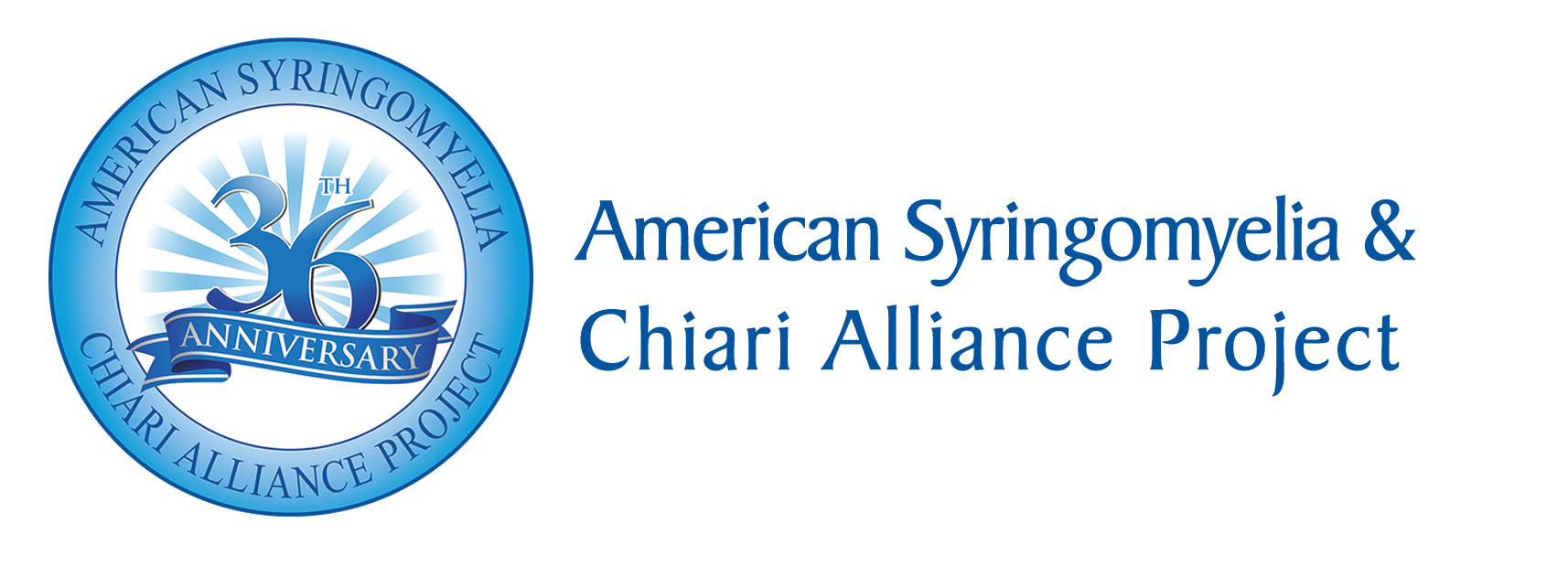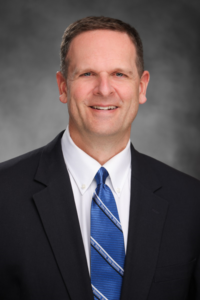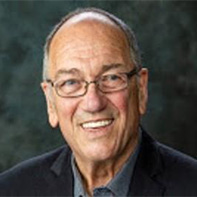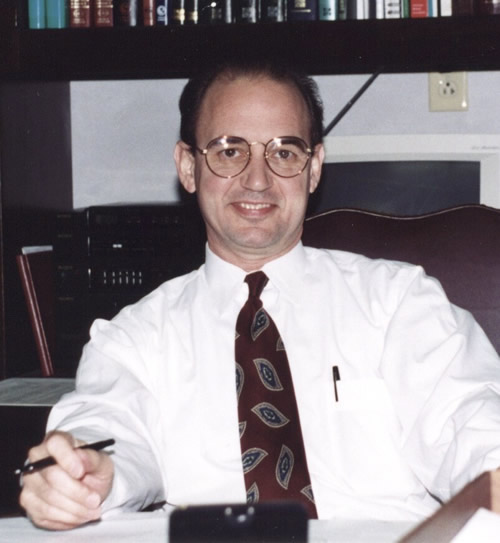(Listed in Alphabetical Order)

numerous publications, including Syringomyelia: Current Concepts in Diagnosis and Treatment published in 1991. Ten years later along with doctors Tamaki and Nagashima of Japan Syringomyelia, Current Concepts in Pathogenesis and Management was published. Dr. Batzdorf’s primary clinical and research focus is on the treatment of Chiari malformation and syringomyelia and spinal cord tumors. He is a coveted speaker on the disorders at medical conferences around the world.

Paramita Das, MD, MS, is a neurosurgeon with expertise in skull base tumors and in trauma neurosurgery. She has advanced training in endoscopic and open approaches to the skull base with a particular interest in minimally invasive approaches. She has an interest in facial pain disorders and offers microvascular decompression, balloon compression, and radiofrequency rhizotomy. With the opening of the University of Chicago Level 1 trauma center she is an integral part of the neurosurgical trauma team caring for critically ill patients and managing head trauma and spine pathology.
Dr. Das conducts medical research in addition to her clinical work. Her scholarly work in brain tumors involves understanding the oncogenesis of tumors, epidemiology of brain tumors, and understanding the best treatment strategies for improving quality of life. She is working to combine the knowledge of the genetics of tumors with outcomes data so that we may be able to treat based on a better understanding of the course of the disease. She also is interested in outcomes after traumatic brain injury and associated biomarkers.

Gerry Grant
Chair of Department of Neurosurgery
Duke University
Gerald Arthur Grant, M.D., an internationally known surgeon-scientist, has been named the new chair of the Department of Neurosurgery at Duke University School of Medicine, effective April 1, 2022.
Grant returns to Duke from Stanford University, where he is currently an endowed professor and chief of pediatric neurosurgery.
In 2006, Grant joined Duke’s faculty as an associate professor in the Department of Surgery after serving in active duty in the United States Air Force. He was deployed to Iraq in support of Operation Iraqi Freedom. He left Duke in 2013 to become chief of pediatric neurosurgery and vice chair of neurosurgery at Stanford. He also serves an Associate Dean of Academic Affairs at Stanford.
“I am thrilled to welcome Dr. Grant back to Duke,” said Mary E. Klotman, M.D., dean of the Duke University School of Medicine. “A preeminent clinician, scientist and educator, Dr. Grant brings experience, knowledge and skills acquired over his distinguished 30-year career to guide our outstanding Neurosurgery Department into the future. His vision, collaborative spirit and leadership will be instrumental in advancing the School of Medicine’s mission of excellence in patient care, discovery, education, and community partnership.”
Grant specializes in treating pediatric and young adults with brain tumors and medically refractory epilepsy. His research focuses on innovative ways to open the blood-brain barrier to improve the delivery of novel drugs and immunotherapy to target brain tumors.
Grant is currently an investigator on several initiatives funded by the National Institutes of Health (NIH) relating to brain tumors, focused ultrasound, brain tumor immunotherapy and concussion. He is an author on 280 peer-reviewed journal articles, holds several leadership positions nationally, and serves on multiple editorial boards in neurosurgery.
Grant received his undergraduate degree in neurosciences at Duke University and his medical degree from Stanford University School of Medicine. He completed his residency in neurosurgery at the University of Washington in Seattle and fellowship in pediatric neurosurgery at Seattle Children’s Hospital.

https://dir.ninds.nih.gov/ninds/Faculty/Profile/john-heiss.html

brachial plexus reconstruction, and endoscopic surgery for tumors and congenital brain anomalies. His contributions to research includes the introduction of novel imaging techniques aimed at minimizing the radiation exposure of children with hydrocephalus, and
analysis of craniocervical CSF flow in children with Chiari malformation and syringomyelia. Dr. Iskandar has committed a large portion of his time to run a translational research laboratory, in which he studies ways to repair the central nervous system (brain and spinal cord) after injury. This has significant impact on patients with Chiari and syringomyelia, who suffer from motor and sensory dysfunction as well as pain. In his studies, Dr. Iskandar’s group has uncovered a crucial link between the folate pathway, epigenetics, and CNS repair. At ASAP 2017, he will be presenting a review of epigenetics and its role in nervous system diseases.
www.uwhealth.org/findadoctor/profile/bermans-j-iskandar-md/6392
Robert Keating, MD is currently Professor and Chief of Neurosurgery at the Children’s National Medical Center in Washington, DC. Dr. Keating graduated from Georgetown University Medical School in 1983 and subsequently went to New York where he did his training in Neurosurgery at the Albert Einstein and Montefiore Medical Center in the Bronx. A fellowship in Pediatric Neurosurgery as well as Craniofacial Surgery followed at Einstein / Montefiore in 1990.
Subsequent to his training, Dr Keating served in the Navy and was stationed at the Oakland Naval Hospital from 1990-1994, during which time he served as the Chief from ’91 to ’94. He then returned briefly for 2 years to the Bronx where he was on staff at Montefiore Medical Center as well as the Bronx Municipal Hospital Center. He came back to Washington in 1996 to join the faculty at the Children’s National Medical Center and later became Chief of the Division of Neurosurgery in 2003 and Professor of Neurosurgery and Pediatrics in 2008. His past appointments include the President of the Medical Staff at the Children’s National Medical Center as well as Head of Credentials and he currently maintains a busy practice of pediatric neurosurgery, with an emphasis on tumors, Chiari malformations, craniofacial reconstruction, spinal dysraphism, spasticity and brachial plexus surgery. As a member of the American Society of Pediatric Neurosurgery and International Society of Pediatric Neurosurgery, he has published and presented extensively in the field. His publications include the previous texts, “An Atlas of Orbitocranial Surgery” and “Tumors of the Pediatric Nervous System” (2nd edition published in 2013 ) with current work on Neurosurgical Operative Atlas, (2nd ed. Goodrich JT, and Keating RF, Thieme) due for publication in 2020. He is also Chair, Medical Advisory Committee on the Board of the American Syringomyelia Alliance Project as well as a founding member of the Posterior Fossa Society and maintains long-standing membership in the CNS , AANS , ASPN and ISPN.
https://childrensnational.org/choose-childrens/find-a-provider/robert-keating
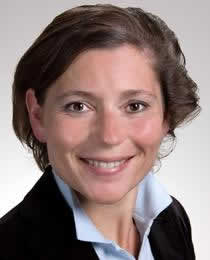 Dr. Klinge is Full Professor of Neurosurgery at The Warren Alpert Medical School of Brown University. She is an internationally renowned clinician for the diagnosis and neurosurgical treatment of patients with hydrocephalus and Alzheimer’s disease. Pediatric
Dr. Klinge is Full Professor of Neurosurgery at The Warren Alpert Medical School of Brown University. She is an internationally renowned clinician for the diagnosis and neurosurgical treatment of patients with hydrocephalus and Alzheimer’s disease. Pediatric
hydrocephalus disorders also comprise another large part of her clinical practice. From her clinical work at the International Neuroscience Institute in Hannover, she has developed outstanding expertise in the diagnosis and management of the most difficult and rare diseases of the nervous system and the spine. In addition to complex adult and pediatric hydrocephalus, her practice also includes patients with associated developmental cerebrospinal fluid disorders, such as spina bifida, tethered cord syndrome, and Chiari malformation as well as both benign and malignant tumors of the brain and skull based surgery.
David Knowlton retired as president and CEO of the New Jersey Health Care Quality Institute, an independent, non-partisan organization promoting health care quality, safety, accountability and cost-containment. (https://www.njhcqi.org )
David, a founding member of the institute, has advocated for eliminating medical errors and improving health care quality throughout his career. Under David’s leadership, the Quality Institute has promoted projects and initiatives that have advanced health quality, education and consumer protections. The Institute has successfully advocated for numerous statutory improvements to ensure patient safety and transparency — in both quality and cost. These include the New Jersey Heath Care Consumer Information Act in 2003, the Patient Safety Reporting Act in 2004, the Drug Price Registry Act in 2006 and the Hospital Acquired Infections Reporting Act of 2007.
The Quality Institute traces its roots to the Health Care Payers Coalition of New Jersey, a non‐profit organization representing business and labor organizations that provide healthcare for members and employees. In the early 1990s, David founded the Payers Coalition and served as a permanent member of the Coalition’s Board and Executive Committee throughout its history. David and others, inspired to improve health care quality and contain costs, launched the Quality Institute in 1997 and David became its first President & CEO.
David served as chairman of the Leapfrog Group (https://www.leapfroggroup.org/) In 2009 and 2010, a national organization promoting health care safety and quality. He also served as a Leapfrog Group board member for 10 years and chaired the Leapfrog Hospital Safety Score committee. He has served on numerous National Quality Forum Steering Committees as well (https://www.qualityforum.org/home.aspx).
From 1987 until 1990, David was Deputy Commissioner of Health for the State of New Jersey under the administration of Gov. Tom Kean. He also served on the Commissioner’s Long Term Care Task Force and New Jersey’s Health Data Advisory Committee. He currently serves on the Commissioner’s Quality Improvement Advisory Committee.
During Governor Chris Christie’s transition following his 2009 election as governor, David led the governor’s transition team on health care.
David also has been recommended by the United States Trustee and appointed by the court as a “Patient Care Ombudsman” to protect patient rights and quality in three health care bankruptcy proceedings.
David currently serves as a director, Vice Chairman and Compliance Officer of the HealthWell Foundation (https://www.healthwellfoundation.org/ , a national foundation that provides copayment relief to needy persons with chronic disease.
David has served as the Chairman of the Board for St. Francis Medical Center, a safety net hospital serving the Greater Trenton community. With former Governor Jim Florio, David co-chaired The Partnership to Fight Chronic Disease in New Jersey.
David also helped found and currently chairs Health Care Policy 360, a joint venture of Rutgers University and the Quality Institute. This four-day immersion course explains the real-world impact of emerging health trends to senior level executives in health care industries. David also served as an adjunct professor of Political Science at Rutgers University
A leading voice in health care, David topped NJ Spotlight’s list of “New Jersey’s Top 10 Healthcare Policy Analysts and Experts” and was listed in the annual NJBIZ “Power 50 Health Care” rankings.
David was the chairman and CEO of Compassionate Care Foundation, one of the first 6 Alternative Treatment Centers licensed to grow, process and dispense medicinal marijuana under New Jersey’s new medicinal marijuana law. After operating the ATC for 6 years, he sold the ATC to Acreage Holdings, a publicly traded company in the cannabis space. He then founded and leads the Cannabis Education and Research Institute (CERI) to preserve and expand access to medicinal marijuana (https://www.ceriusa.org).
David is a founding board member of America’s Nurses, America’s Nurses, the nation’s first Nurse Practitioner practice management organization. As a Public Benefit Corporation, America’s Nurses has a financial commitment to the Nurse Practitioner profession and the healthcare needs of those they serve. In 2021, they launched their flagship practice, Altrix Primary Care in Nashua, New Hampshire (https://www.altrixpc.com/nashua) where they are championing a direct primary care delivery model.
David completed his baccalaureate education in psychology at the University of Massachusetts in Amherst and was granted a Master’s degree from Trinity College in Hartford.
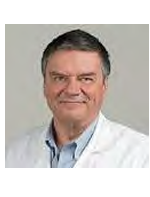
Emeritus Professor of Neurosurgery, Department of Neurosurgery. David Geffen School of Medicine. University of California, Los Angeles. Clinical and research interest in congenital malformations of the Central Nervous System. Currently, involved in researching the logical processes of deriving inferences about the quality of life for patients with congenital malformation of the nervous system.

https://medicine.umich.edu/dept/neurosurgery/cormac-o-maher-md
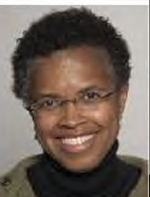
John Oró MD, AANS Fellow, joined faculty at the University of Missouri (MU) Health Sciences Center in Columbia in 1984 following completion of his neurosurgical training at MU. During his early neurosurgical career, Dr. Oró focused on pediatric neurosurgery, skull base neurosurgery, and cerebrovascular surgery. In 1991, at the age of 40, Dr. Oró became Chief of the Division of Neurosurgery. He became a Professor of Neurosurgery in 1999.
Dr. Oró recruited neurosurgical faculty and supported the development of subspecialty programs in Pediatric Neurosurgery, Skull Base & Cerebrovascular Surgery, Deep Brain Stimulation, Radiosurgery, and Spinal Surgery. He co-founded the Neurosurgery Research Laboratory and performed early research in motor evoked monitoring and magnetic transcranial stimulation. He also contributed to multiple national research trials in neurosurgery. In 1998, Dr. Oró and Diane Mueller, ND, RN FNP-BC, established The Chiari Clinic, a specialty center for the persons with the Chiari I malformation and Syringomyelia.
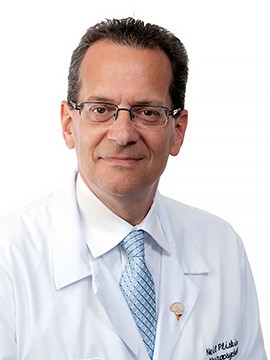 Dr. Neil Pliskin is a board certified clinical neuropsychologist and director of neuropsychology services at UI Health. He has over 25 years of experience working as a clinical neuropsychologist and directing clinical neuropsychology training programs. Dr. Pliskin has strong scientific and clinical interests in memory disorders, neuropsychological symptoms of medical illness (MS, dementia, renal disease) and in particular brain trauma (electrical shock injuries). He is a former president of the Society for Clinical Neuropsychology, Division 40 of APA.
Dr. Neil Pliskin is a board certified clinical neuropsychologist and director of neuropsychology services at UI Health. He has over 25 years of experience working as a clinical neuropsychologist and directing clinical neuropsychology training programs. Dr. Pliskin has strong scientific and clinical interests in memory disorders, neuropsychological symptoms of medical illness (MS, dementia, renal disease) and in particular brain trauma (electrical shock injuries). He is a former president of the Society for Clinical Neuropsychology, Division 40 of APA.
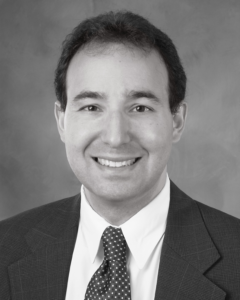 Dr. Joshua M. Rosenow is the Director of Functional Neurosurgery and Professor of Neurosurgery, Neurology and Physical Medicine and Rehabilitation in the Northwestern University Feinberg School of Medicine Department of Neurosurgery, as well as at Northwestern Memorial Hospital. He specializes in the surgical treatment of movement disorders such as Parkinson’s disease, tremor, and dystonia, as well as the surgical treatment of epilepsy and chronic pain.
Dr. Joshua M. Rosenow is the Director of Functional Neurosurgery and Professor of Neurosurgery, Neurology and Physical Medicine and Rehabilitation in the Northwestern University Feinberg School of Medicine Department of Neurosurgery, as well as at Northwestern Memorial Hospital. He specializes in the surgical treatment of movement disorders such as Parkinson’s disease, tremor, and dystonia, as well as the surgical treatment of epilepsy and chronic pain.
 Ilene S. Ruhoy, MD, PhD is a board-certified neurologist in private practice in Seattle, WA and the medical director for the Chiari EDS Center at Mt. Sinai South Nassau Hospital. Originally from New York City, she received her MD at the University of Pittsburgh and trained in both pediatric and adult neurology at the University of Washington and Seattle Children’s Hospital with fellowship training in neuromuscular medicine and a focus on mitochondrial disease. She is a graduate of the University of Arizona Integrative Medicine Fellowship. Her PhD is in Environmental Toxicology from the University of Nevada. Dr. Ruhoy is the co-editor of Integrative Neurology, published by Oxford Press in July 2020 and the co-editor of Preventative Neurology issue of Seminar in Neurology to be published by Thieme Medical in November 2022.
Ilene S. Ruhoy, MD, PhD is a board-certified neurologist in private practice in Seattle, WA and the medical director for the Chiari EDS Center at Mt. Sinai South Nassau Hospital. Originally from New York City, she received her MD at the University of Pittsburgh and trained in both pediatric and adult neurology at the University of Washington and Seattle Children’s Hospital with fellowship training in neuromuscular medicine and a focus on mitochondrial disease. She is a graduate of the University of Arizona Integrative Medicine Fellowship. Her PhD is in Environmental Toxicology from the University of Nevada. Dr. Ruhoy is the co-editor of Integrative Neurology, published by Oxford Press in July 2020 and the co-editor of Preventative Neurology issue of Seminar in Neurology to be published by Thieme Medical in November 2022.

https://hospital.uillinois.edu/find-a-doctor/konstantin-slavin

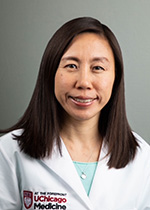 A board-certified radiologist/neuroradiologist, Dr. Carina Yang specializes in pediatric neuroradiology with a focus on diagnosing and characterizing the full scope of head, brain, spine and neck conditions. Dr. Yang is an expert in interpretation of computerized tomography (CT) and magnetic resonance (MR) examinations, and promotes techniques for pediatric patients to minimize radiation exposure and performing testing without the need for extended sedation. The Margaret Hackett Family Program at the University of Chicago aims to collaborate with physicians who advocate for the education and the advancement of knowledge pertaining to the care of patients. Dr. Yang dedicates time to aid the program’s medical researchers by suggesting the best imaging modalities and how to best evaluate imaging data when evaluating past approaches to treatment and planning innovative clinical trials. Her collaboration ensures an effective multi-disciplinary approach to analyzing clinical data, understanding patient scans, and expanding educational frontiers.
A board-certified radiologist/neuroradiologist, Dr. Carina Yang specializes in pediatric neuroradiology with a focus on diagnosing and characterizing the full scope of head, brain, spine and neck conditions. Dr. Yang is an expert in interpretation of computerized tomography (CT) and magnetic resonance (MR) examinations, and promotes techniques for pediatric patients to minimize radiation exposure and performing testing without the need for extended sedation. The Margaret Hackett Family Program at the University of Chicago aims to collaborate with physicians who advocate for the education and the advancement of knowledge pertaining to the care of patients. Dr. Yang dedicates time to aid the program’s medical researchers by suggesting the best imaging modalities and how to best evaluate imaging data when evaluating past approaches to treatment and planning innovative clinical trials. Her collaboration ensures an effective multi-disciplinary approach to analyzing clinical data, understanding patient scans, and expanding educational frontiers.Conference Registration is closed
